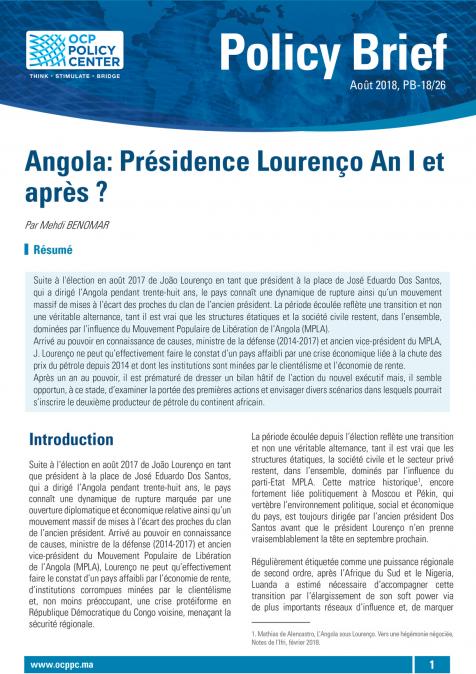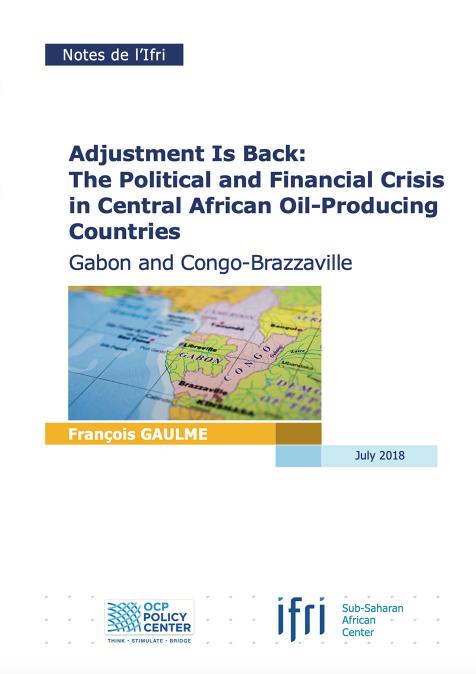Publications /
Opinion
Kenyans headed to the polls on August 9 to elect their fifth president, along with county governors, members of the Senate, and National Assembly representatives. The elections took place in a context of growing challenges of rising commodity prices, and the recent developments over the maritime dispute in which the International Court of Justice ruled in favor of Somalia. The presidential race between William Ruto—former deputy minister in the past government—and Raila Odinga, the leading opposition figure is very tight, in an election that saw the lowest number of presidential candidates cleared since the establishment of a multiparty system in 1992. The number of registered electorates was 22,120,458 and the turnout rate was, at 64%, far from the 80% rate in the 2017 elections.
For a candidate to be declared winner of the presidential election, he needs to secure 50%+1 votes and a minimum of a quarter of the votes in 24 out of 47 counties. The Electoral Commission has seven days to announce the results, which can be appealed by the defeated candidate before the Supreme Court. The latter can nullify the votes and order a rerun, or confirm the results of the elections. In both cases, observers still fear violent outbreaks from the defeated candidates’ partisans.
The Voting Process
Despite irregularities and technical issues reported by some polling stations, the overall elections went smoothly. International observers issued positive feedback on the conduct of the elections. The Kenyan diaspora living in 12 countries (Burundi, Tanzania, Rwanda, Uganda, South Africa, United Kingdom, Canada, United States, South Sudan, Qatar, UAE, and Germany) also cast their votes. Of four cleared candidates: David Waihiga, George Wajackoyah, Raila Odinga, and William Ruto, only the two last stood in a very tight presidential race.
Raila Odinga and William Ruto both have considerable electoral bases but are also dire political opponents to each other. The only common feature of the two is that they are well known to Kenyans.
A Competition Between Ruling Dynasties and Self-made Politicians
Raila Odinga, 77 years old, is the son of Oginga Odinga, one of the founding fathers of independent Kenya, alongside Jomo Kenyatta, father of the outgoing president Uhuru Kenyatta. Odinga’s candidacy for the 2022 election is his fifth and possibly last attempt to gain the position of head of state. He is known to Kenyans as ‘baba’, a veteran opposition figure and a politician who was famous for criticizing the ruling party and President Uhuru Kenyatta, until a ‘hand shaking’ in 2018 led to changed alliances and Raila Odinga becoming a strong ally of Uhuru Kenyatta. The two have made a joint proposition called the “Building Bridges Initiative”, which aims to promote social and economic development, and to limit ethnic divisions. Although the project was promising and raised hopes about ending ethnic politics, the sudden rapprochement between Raila Odinga and Uhuru Kenyatta was not well received by all. One of the suggestions was to amend the constitution to enlarge the prerogatives of the president and re-create the post of prime minister, but the proposition was rejected. Opponents considered the maneuver as a premature engaging in electoral campaign.
If elected, Raila Odinga promises to put an end to corruption and to prioritize the economic demands of Kenyans. He promised cash support of 6000 shillings (about $50) monthly for families below the poverty line, and equitable access to health services nationwide.
At the other end of the spectrum is William Ruto, 55 years old, deputy president in the out-going government and an example of a self-made businessman and politician. Unlike Raila Odinga and Uhuru Kenyatta, he does not come from a wealthy political dynasty. He praises himself as a hustler who has made his way into politics, with the desire to change the culture of dominant dynasties as symbolized by the Odinga and Kenyatta families. However, the political history of William Ruto should be treated with caution, as he faced, along with former president Uhuru Kenyatta, allegations of fueling deadly electoral violence in 2007.
If elected, Ruto promises to support the agricultural sector, the largest job provider in Kenya. He pledged to invest 500bn Shillings ($4.2bn) over five years. Ruto has also committed to reveal contracts with China, to allow Kenyans to know where public debt is spent.
Another common feature between Raila Odinga and William Ruto is that they both symbolize continuity of the former government. The first in 2018 became an ally of Uhuru Kenyatta, with whom he was previously in conflict for decades. Hence, some of his partisans as well as opponents consider that he carries within his agenda features from the former government, while the citizens are keen on seeing a new approach to politics. As far as William Ruto is concerned, he served as deputy president to Kenyatta for two terms, thus being blamed for many of the failures of the outgoing government.
Elections Evolving Around Economic Issues Rather than Ethnic Groups
As far as election manifestos are concerned, both candidates have displayed a willingness to echo the concerns of Kenyans citizens. Rising inflation, public debt, and youth unemployment were all burning issues the frontrunner candidates promised to tackle. In fact, the presidential elections were for the first time not crystallized around ethnic issues, but were rather shaped by economic agendas, corresponding to mounting popular concerns over poverty reduction and urgent need for economic support measures.
The history of Kenyan elections since independence has been one of violent events following the announcement of election results. The country counts more than 70 distinct ethnic groups and is always vulnerable to violent protests, particularly among the supporters of the dominant ethnicities of Kikuyu, Luo, Luhya, Kamba, and Kalenjin, who make up 70% of Kenya’s population. It is thus unsurprising that although William Ruto and Raila Odinga have steered clear of ethnic politics, they both chose their running mates from the largest ethnic group, the Kikuyu.
Challenges Ahead
Regardless of the identity of the new president, mounting challenges must be addressed by the incoming government. Kenya has seen modest economic growth (5%) in 2022, affected by slow activity because of election spending, in addition to the increase in inflation and commodity prices, because of external factors including the COVID-19 pandemic and the war in Ukraine. In the ten years under Uhuru Kenyatta, structural challenges continued to impact the living standards of Kenyan households, which are believed to have lost nearly half of their purchasing power because of stagnating wages and rising energy prices.
Colossal external debt is another burning issue the new government must address. According to the Kenya National Bureau of Statistics, Kenyan external debt amounted to 4.21 trillion shillings ($35 billion) in March 2022. The bulk of it is constituted of multilateral debt that rose by 21.5% from last year alone. As far as bilateral debt is concerned, China leads with an amount of 802 billion Shillings through sovereign bonds. Hence, China is viewed by public opinion as deliberately increasing the debt burden of Kenya. Election frontrunner William Ruto has promised to reveal all contracts with China and deport Chinese workers residing illegally in Kenya.
Finally, Kenya is also dealing with a critical situation pertaining to delimitation of maritime borders with Somalia, following the International Court of Justice decision of October 2021. This awarded the largest share of the offshore blocs under dispute to Somalia. Kenya has long opposed the jurisdiction of the ICJ on the matter and rejected the decision. However, the management of the upcoming period in terms of bilateral and diplomatic relations with neighboring Somalia will require from the new government agility and diplomatic skills to navigate through tough times ahead.




